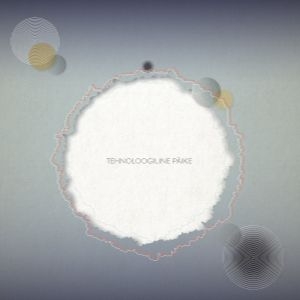Tehnoloogiline Päike - Technological Sun

Estonia is probably the last place one thinks of when pondering the international possibilities of electronic music, but the former Soviet country is slowly making a name for itself in the avenues of drum and bass, breakcore and industrial. Tehnoloogiline Päike stands out even further from this very marginal musical pack with an experimental pop take on electronica. Their third album is a translation of the group’s name in English:Technological Sun.
Tehnoloogiline Päike was formed in 2004 by Evar Anvelt and was originally a one-man show until Mihkel Kõrvits began collaborating in 2007. Hannaliisa Uusma, already an Estonian rock star in her own right as lead singer of the band HU? contributed on this album. The group as Anvelt and Kõrvits won Album of the Year in the Electronic Music Category of the Estonian Music Awards in 2012 for their second album. They also worked with the Estonian Symphonic Orchestra to create lavish and grandiose symphonic arrangements of their music with audiovisual backing.
Technological Sun was designed, says Anvelt, to explore the experience of depression as a musical arrangement. It is thus a more stripped-down version of Tehnoloogiline Päike’s sound compared to the last album, but it is no less emotive and just as technically interesting and clean. Released in February of this year, the album opens with a clangy analog-sounding track called 'This Means War'. It begins with seemingly random bell sounds which sound almost folkish, but which eventually organize into a melody.
If Anvelt’s intention is that Technological Sun be a musical interpretation of the stages of depression, 'This Means War', with its dulcet yet confused tones in the beginning leading to a heavy and melancholic bass melody may represent the beginning stages of the disease, where confusion, dissonance and anxiety can lead to hopelessness. The title 'This Means War' may mean the war with the self; dueling parts of the mind.
No lyrics in 'This Means War' mean the audience can only attempt at interpretation, but the second song on Technological Sun, 'Breaking It' is a different story. The track opens in a manner which will make the listener think that Dracula got a hold of the score to Phantom of the Opera. Heavy electronic organ sounds start as even heavier minor chords but then switch suddenly to major just before the lyrics begin. With the experimental syncopation in the drum track, listeners might thing the tempo changes at the point of the tonal switch, but it’s a clever trick. The lyrics, organs and drums all have different tempos, giving 'Breaking It' a type of confusion and dissonance which is completely different from 'This Means War.' The lyrics of 'Breaking It', sounding very 80s emo, clearly describe the agony of depression, as do those of the next track, 'So Many Days'. With these two tracks, there is no hinting anymore.
“There are so many days you feel you break…there are so many you feel everything’s fake; there will be many days where you will endlessly fight,” Are the lyrics repeated in a round in 'So Many Days,' and these poignant words so succinctly describe the internal struggle of mental illness, and the difficulty of battling back. The sensitivity in the lyrics here is offset by very hopeful sounding electronic melodies, a juxtaposition which seems intentional on Anvelt’s part. Similarly in 'If I Just Die', singer Hannaliisa Uusma enters the picture with her wispy, beatific vocals playing contrast with Anvelt’s raspy, James Murphy-of-LCD Soundystem-like voice. She adds an esoteric, almost peaceful quality to a song which is essentially about the contemplation of death and insanity.
After 'If I Just Die', the short, seven-song Technological Sun moves back to more experimental, yet nonetheless symphonic tones with 'Redemption'. Uusma once again lends her angelic voice to this track, creating peace and beauty among Anvelt’s chaotic electronic chattering. 'Exit' is possibly the most conventional-sounding song on the album, with its half dubstep, half drum and bass beat. The melody once again is almost classical in nature, with definite hints of Eastern Christian music.
'Exit' leads into the album’s dénouement - and it’s clear that Anvelt wants it to be a dénouement - 'Remember Me'. At once haunting and symphonic yet sounding like it was created on an old Casio from the 80s, there is no ascension in 'Remember Me', though the trajectory of the album and its song titles would lead a listener to expect something hopeful; a period on the end of the sentence. Though this track is the most cohesive-sounding on Technological Sun, as it trails off into silence, it definitely leaves an ellipsis rather than a period. The journey back from fear and madness is not finished, and it’s clear that Tehnoloogiline Päike is not either. Therein lies the intrinsic hopefulness in Anvelt’s work: it may still be painful, confusing or downright wrong, but it’s not finished. Not yet.
In their own right, Tehnoloogiline Päike have become a very mainstream and much cherished part of Estonian music culture, despite being largely experimental electronica. In this way, they represent Estonia as a major player in electronic music now and in the future, as the country’s growing musical culture clearly supports and nurtures a cutting-edge group like Tehnoloogiline Päike. Add in the emotionally charged and highly personal nature of their latest album, Technological Sun, Estonia may have in this group a recipe for its first international music stars.
Apr 26 2016
Off label
Official release released by the artist themselves without the backing of a label.
Share this review
Facebook
Twitter
Google+
Shares
Buy this release
Bandcamp
Haus Arafna - New York Rhapsody is available at POPONAUT from 15,95€
Related articles
Blitzkrieg Baby - 'Kids' World EP'
Review, Jun 27 2014
BlakLight - 'Into The Void'
Review, Oct 11 2021
Volt 9000
Interview, May 28 2015
Disco Dreams - 'Cryptic [K]night'
Review, Jun 20 2022
Rotersand - 'Merging Oceans'
Review, Jan 01 2003



